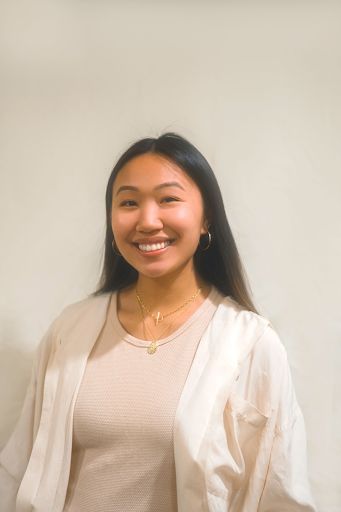Natalie Elskamp
Reporter
The school year is coming to a close, and with that, student leadership transitions are underway.
Cece Chan, current president of Associated Students of Pacific Lutheran University (ASPLU), is soon to pass on her role to the newly sworn-in Kenzie Knapp. Despite the hecticness of election season, Chan graciously accepted my recent invitation to share some of her reflections regarding her time as chief representative.
We are all familiar with the changes and unique challenges this year has brought as we shifted back into in-person learning. For Chan, it has been no less of a struggle, even though coming into the year she made every effort to stay optimistic. Her visions were big at the start: new collaborations with student clubs and organizations, launching social justice projects, addressing the tensions between upper and lower campus, and discovering ways to re-engage the Lute community, to name a good few.
However, she soon learned that none of this would be happening right away.
“What surprised me is how burnt out and overwhelmed I felt in fall semester,” she said. “For the first time I was struggling to show up to class. Everything just took so much out of me and it started affecting my leadership as well — I was just doing the bare minimum to survive.”
Chan is not new to the stresses that come with big leadership positions. In past years, she has served both as ASPLU senator and as the Diversity Director at PLU, but this year has been her first entirely in person. It was this readjustment, she believes, that was taking such a toll on her mental health. This did not stop her or dampen her enthusiasm, but it did teach her the value of thinking more realistically about what achieving her goals entails.
“I learned how to say no. I learned how to delegate. I learned how to prioritize my needs and how that would benefit the students I look over,” she said.
With this new outlook, Chan pressed forward and is pleased with the progress she and her fellow representatives have made. They have realized a senate that is now more than 50% persons of color, pushed for reforms in the school’s counseling services, and have kicked off the My Academics Deserve Care (MAD Care) campaign.
“[MAD Care] is a movement to focus on this idea of radical compassion that is equity-centered and social justice-centered,” Chan explained. “It says that our worth as students is not in what we produce. It’s not our grades.”
In March, students were invited to share how care in the classroom could be improved through a Google Form linked on the ASPLU Instagram page. As a result, several faculty members have signed a pledge demonstrating their willingness to prioritize care in the classroom. The collaborative document can be viewed through the ASPLU Instagram Linktree.
But for ASPLU, this alone is not enough. A growing concern among students is that PLU’s Counseling Center, while touted as comprehensive and accessible, has unreasonably long wait times and is not ethnically representative of the student body. To combat this, ASPLU has been helping the Counseling Center raise money for more counselors of diverse backgrounds, an effort that Chan adamantly stands behind.
These are somewhat different goals than she originally had in mind, but in light of the unthinkable — the death of a student to suicide last semester — the senate knew mental health had to become a priority.
The senate also had to consider new issues and questions as they arose, such as whether or not the removal of the university-wide mask mandate was an appropriate decision.
At the end of the day, a president simply cannot meet every expectation and she can only be as effective as those working under her to make things happen. When I expressed this thought to Chan, she agreed.
“It’s not my responsibility [alone] to fix PLU, but it is my responsibility, as someone who the student body’s put trust in, to put my best foot forward,” she said.
With that, Chan left me with some advice for any future representatives who might be reading this.
“Don’t be afraid to apply pressure and hold people accountable,” she said. “Don’t be afraid to try out creative forms of social justice… and don’t feel like you have to be everything for everybody. Be your authentic self and own the leader that you know yourself to be.”



















